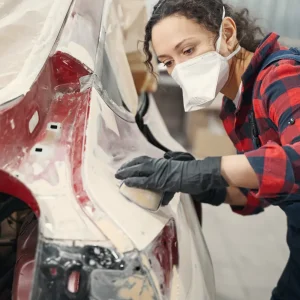Tech-geeks love them, but what are ‘apps’, and what impact might they have on the world of fleet? Tristan Young looks at the mobile phone phenomenon and the future of fleet management on handheld devices
Are we looking at the future of fleet? A future where drivers can report their mileages on their Blackberry? Or call for breakdown assistance automatically while their phone tells an operator where to send the recovery van?
While this may seem fanciful, it’s all possible, and Jakes de Kock, marketing director at The Fuelcard Company, believes apps and mobile devices could save fleet managers and drivers thousands of pounds in fuel costs.
Commenting on RAC’s congestion avoidance app for the iPhone, de Kock says: “This mobile application will revolutionise the way fleet businesses operate and make it possible to avoid queuing traffic on every single journey. In this difficult economic climate, effective fleet management is essential, and small changes, such as making use of congestion planning technology and introducing a fuel management system, can make a big difference.
“Bypassing queuing traffic will also reduce ‘stop-start’ driving caused by constantly braking and speeding up, which can increase fuel consumption by as much as 40%. Nearly 50% of the energy needed to power a car goes into acceleration so being able to maintain a steady speed is essential for making fuel savings.”
Not for all
Others, however, sound a note of caution, claiming only certain fleets will find apps useful.
“Remote vehicle appraisals for defects is one use, but it’s more for trucks than cars,” says Jason Francis, boss of Jaama. “The Vehicle and Operator Services Agency has got specific criteria of items that need to be recorded, so these systems can be used in the management process.
“Similarly, daily rental firms use these systems for vehicle appraisals on delivery and collection and allowing users to sign for condition.”
Karan Ridgard, operations director at Chevin agrees, particularly with Francis’s initial point. “Some areas are for commercial vehicles more than cars. For example, first thing in the morning devices can be used to record safety checks on vehicles, such as tyres and oil,” she says. “Anything that can talk to the internet and has a 3G card, such as a PDA, Blackberry or notebook, can be used, but it’s about making the data useable.”
“The other area is mileage capture,” says Francis. “We have online capture for drivers so they can log in to see what they should and shouldn’t be doing and also to complete mileage returns. This could be done on a hand-held device, but I’m not sure who uses this method, rather than waiting until they’re at home or in the office to use a computer.”
Ridgard adds: “Mileage claims are widely done through the internet or a company’s intranet using a PC. At the moment that level of uptake hasn’t transferred to PDAs.”
Ridgard claims that there are a few stumbling blocks to overcome before mobile devices become widely used in fleet. “Not everyone has a Blackberry and the screen size is another hurdle,” she adds.
Francis agrees that there are limiting factors: “There’s lots possible because hand-held devices that are connected to the internet are so widespread. Basically, any web system can quite easily run on a device, but in reality it’s the screen size that limits data entry, which is what fleet management is about in this area.”
Tracking devices
Boss of Mycompanyfleet, Andrew Leech, believes fleets may leapfrog apps and just use web-based systems on mobile phones.
“These systems are good for mileage capture and vehicle condition. Previously these jobs had to be carried out using a dedicated unit, but now it can be done on a phone.
“The saving comes by removing the need for a dedicated unit.
“These web systems are more and more uniform so there’s no longer the need to use a standard phone across your workforce and there’s no need for an app,” continues Leech. “You can do it all on a phone’s browser – 3G phones can access web-based systems.
“Using mobile phones is great for companies with lots of people out of the office.”
Leech also believes we’re moving toward using phones as tracking devices. “You can track a phone, so you can track a work journey and record the mileage. This means it gives an accurate reading of your business mileage for any expenses claim at a fraction of the cost of a dedicated tracking or telematics unit.”
Leech suggests, too, that in future, following a collision, it may be possible to upload and attach pictures to an accident claim form so that the down-time of repair can be minimised. However, he was unsure if sending pictures of an accident to the fleet manager before calling in was a good idea for either party.
What is an ‘app’?
‘App’ is a shortened version of the word ‘application’, but in recent times has become synonymous with smaller, simpler software programmes that are used across mobile phones and computers often to communicate information between businesses and customers.





